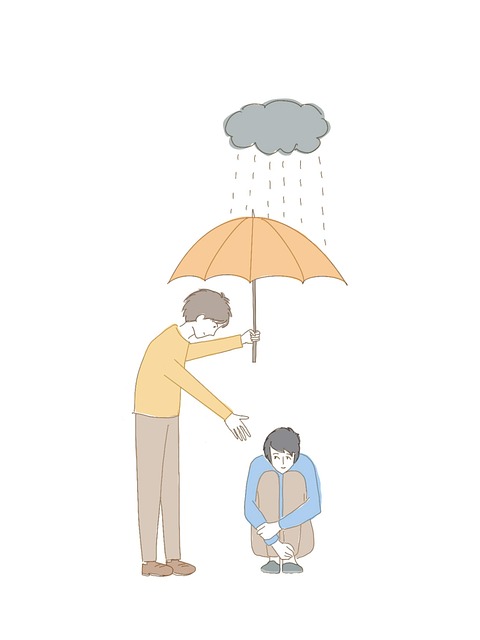Peer support groups and group therapy provide transformative mental health support for teens, fostering belonging, understanding, and resilience through shared experiences. These safe spaces challenge stigma, promote self-acceptance, and enhance coping abilities and social skills, ultimately improving teens' mental well-being.
Peer support and group therapy are powerful tools in fostering mental health support for teens, offering a unique and beneficial approach to their well-being. This article explores the significance of these methods in building resilience and connection among teenagers. We delve into how group settings create safe spaces for open communication, allowing teens to share experiences and overcome stigma together. Additionally, we examine the positive impact on mental health, highlighting personal growth and development through group therapy.
Peer Support: Building Teen Resilience and Connection
Peer support plays a pivotal role in fostering resilience and connection among teenagers navigating challenges related to their mental health. When teens connect with peers who have experienced similar struggles, they find a sense of belonging and understanding. This shared experience forms a powerful foundation for building confidence and coping strategies. Peer support groups create a safe space where adolescents can openly discuss their feelings, exchange insights, and offer encouragement, thereby enhancing their overall well-being.
In the context of mental health support for teens, these peer connections are game-changers. They encourage vulnerability, promote self-acceptance, and challenge stigma associated with seeking help. By learning from one another, teens develop valuable coping mechanisms, build social skills, and gain a sense of empowerment. This network of peers becomes a crucial resource, complementing traditional therapy sessions and fostering a supportive environment that is essential for resilience and positive mental health development.
Group Therapy Benefits: A Safe Space for Teens to Share
Group therapy provides a unique and invaluable environment for teenagers navigating their mental health journeys. In a group setting, teens can connect with peers who are facing similar challenges, fostering a sense of community and understanding. This safe space allows them to share their experiences, fears, and triumphs without the stigma often associated with individual therapy sessions. By listening to one another, participants gain valuable insights and learn that they are not alone in their struggles.
This supportive network promotes open communication, encouraging teens to express themselves more freely. With facilitators guiding the process, group therapy facilitates emotional release, enhances self-awareness, and builds resilience. It empowers teenagers to develop coping strategies collectively, fostering a sense of belonging and mental health support within their peer group.
Fostering Open Communication: Overcoming Stigma Together
Peer support and group therapy create a safe, supportive environment for teens to openly discuss their struggles with like-minded individuals. This fosters a sense of belonging and understanding, as they realize they’re not alone in facing challenges. By sharing experiences and strategies, teens can build resilience and learn from one another, breaking down the stigma associated with seeking mental health support.
In a group setting, it becomes easier to challenge negative thoughts and beliefs that may have developed due to isolation or societal pressures. Members encourage each other to express their feelings without fear of judgment, promoting open communication. This collective experience helps normalize conversations about mental health, making it easier for teens to access the help they need.
Personal Growth: Group Therapy's Impact on Mental Well-being
Group therapy sessions offer a unique and powerful platform for teens to foster personal growth and enhance their mental well-being. In these supportive environments, individuals can openly share their experiences, challenges, and emotions with peers who have similar struggles. This act of vulnerability and exposure is transformative; it encourages self-reflection and promotes the development of coping strategies. Through active participation, teens learn valuable skills in emotional regulation, communication, and problem-solving, all of which contribute to improved mental health support for teens.
The impact extends beyond individual growth; group therapy facilitates a sense of belonging and community. Teens often struggle with feelings of isolation due to their unique experiences or struggles with mental health. In a group setting, they find peers who understand, validate, and accept them without judgment. This social connection is vital for building resilience and fostering a positive self-image. As teens share their stories and listen to others, they gain new perspectives, challenge negative beliefs, and develop a more nuanced understanding of themselves and the world around them.
Peer support and group therapy play pivotal roles in enhancing the mental health support for teens. By fostering connection, providing safe spaces for sharing, overcoming stigma collectively, and promoting personal growth, these initiatives significantly contribute to the resilience and well-being of young individuals. Embracing these therapeutic approaches can be a game-changer in navigating the challenges that come with adolescence, ensuring teens feel seen, heard, and supported on their journey towards maturity.
